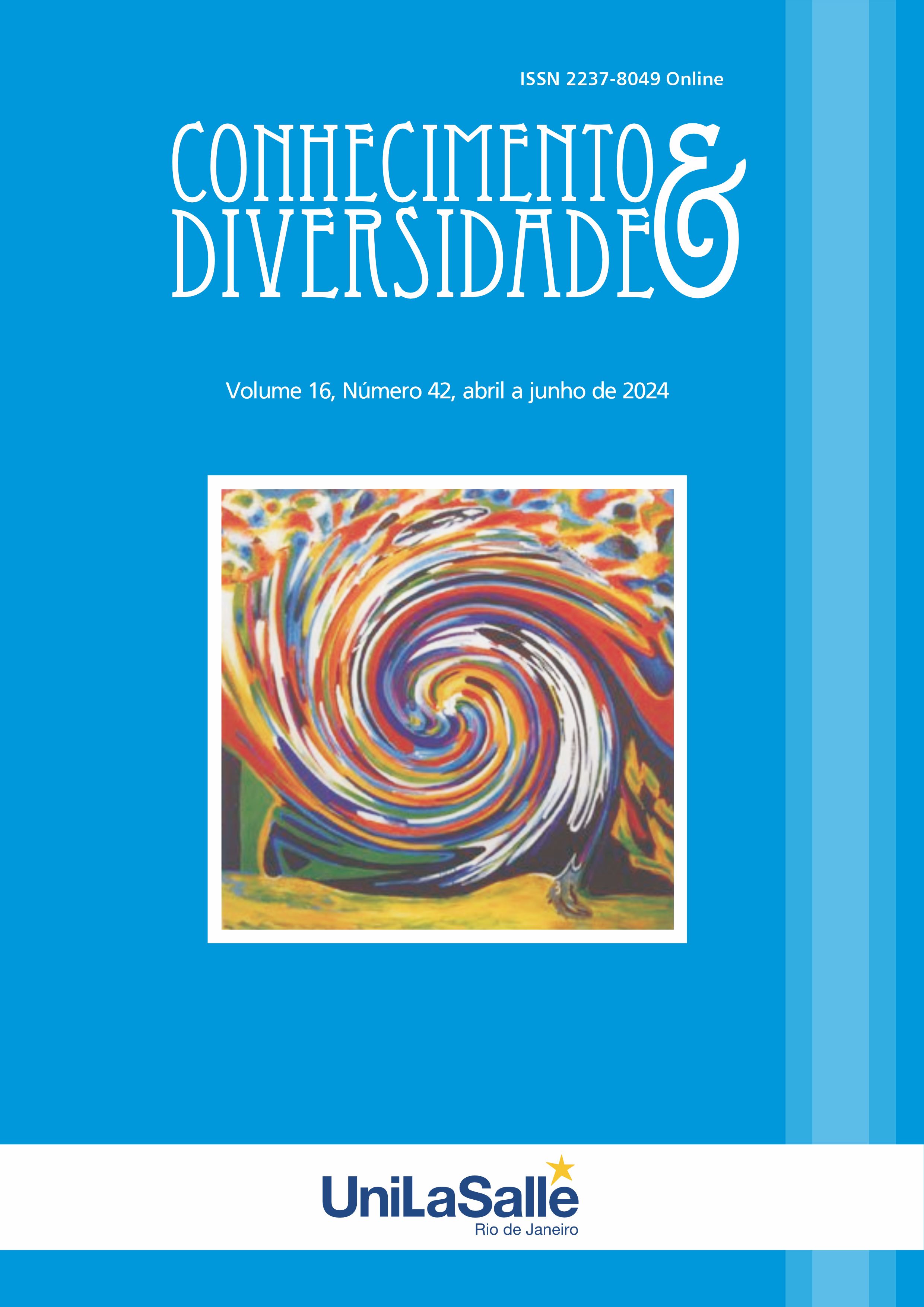O IMPACTO DA TECNOLOGIA NA EDUCAÇÃO E O DESENVOLVIMENTO DE MÉTODOS EDUCACIONAIS
DOI:
https://doi.org/10.18316/rcd.v16i42.11709Palavras-chave:
Self Directed Learning, Education, Work Engagement, Academic PerformanceResumo
O aumento dos dispositivos móveis conectados à Internet e da disponibilidade de mídia aumentou o fascínio dos estudantes pela tecnologia. Isto despertou uma atenção considerável da comunidade de investigação para a compreensão da correlação entre a utilização de meios de comunicação/tecnologia e o desempenho académico, juntamente com métricas como o envolvimento dos alunos e a aprendizagem auto-iniciada. Melhorar as capacidades de autorregulação dos alunos é preferível a proibir ou restringir o uso da tecnologia se a falta de autocontrole e o comportamento multitarefa possibilitado pela tecnologia forem indicadores de desempenho acadêmico. Além disso, um tipo específico de mídia e tecnologia tem sido o foco da maioria dos estudos na literatura. A influência precisa dos diversos tipos de meios de comunicação no sucesso académico permanece ambígua, sendo necessária uma investigação mais aprofundada sobre o impacto do consumo de vários meios de comunicação e das práticas tecnológicas no desempenho académico. Esta pesquisa quantitativa procura examinar a correlação entre o sucesso acadêmico e a utilização de mídia e tecnologia entre estudantes universitários. Além disso, procura aprofundar a associação entre o envolvimento dos alunos, a aprendizagem autodirigida e o seu impacto consequente.
Referências
ARAÚJO, A. C. D., KNIJNIK, J., & OVENS, A. P. How does physical education and health respond to the growing influence in media and digital technologies? An analysis of curriculum in Brazil, Australia and New Zealand. Journal of Curriculum Studies, 53(4), 563-577, 2021.
BILETSKA, I. O., PALADIEVA, A. F., AVCHINNIKOVA, H. D., & KAZAK, Y. Y. The use of modern technologies by foreign language teachers: developing digital skills. Linguistics and Culture Review, 5(S2), 16-27, 2021.
BILOTTA, E., BERTACCHINI, F., GABRIELE, L., GIGLIO, S., PANTANO, P. S., & ROMITA, T. Industry 4.0 technologies in tourism education: Nurturing students to think with technology. Journal of Hospitality, Leisure, Sport & Tourism Education, 29, 100275, 2021.
BÜYÜKBAYKAL, C.I. Communication technologies and education in the information age, Procedia-Social and Behavioral Sciences 174, 636–640, 2015.
CAMILLERI, M. A., & CAMILLERI, A. C. The acceptance of learning management systems and video conferencing technologies : Lessons learned from COVID-19. Technology, Knowledge and Learning, 27(4), 1311-1333, 2022.
CAVAS, B., CAVAS, P., KARAOGLAN, B., & KISLA, T. A Study on Science Teachers' Attitudes Toward Information and Communications Technologies in Education. Online Submission, 8(2), 2009.
DREIMANE, S., & UPENIEKS, R. Intersection of serious games and learning motivation for medical education: A literature review. International Journal of Smart Education and Urban Society (IJSEUS), 11(3), 42-51, 2020.
DUDAR, V. L., RIZNYK, V. V., KOTSUR, V. V., PECHENIZKA, S. S., & KOVTUN, O. A. Use of modern technologies and digital tools in the context of distance and mixed learning. Linguistics and Culture Review, 5(S2), 733-750, 2021.
GURUNATH, R., & SAMANTA, D. A novel approach for semantic web application in online education based on steganography. International Journal of Web-Based Learning and Teaching Technologies (IJWLTT), 17(4), 1-13, 2022.
JAVAID, M., HALEEM, A., VAISHYA, R., BAHL, S., SUMAN, R., & VAISH, A. Industry 4.0 technologies and their applications in fighting COVID-19 pandemic. Diabetes & Metabolic Syndrome: Clinical Research & Reviews, 14(4), 419-422, 2020.
KOSARETSKY, S., ZAIR-BEK, S., KERSHA, Y., & ZVYAGINTSEV, R. General education in Russia during COVID-19: Readiness, policy response, and lessons learned. Primary and secondary education during Covid-19: Disruptions to educational opportunity during a pandemic, 227-261, 2022.
KOSTOPOULOS, G., & KOTSIANTIS, S. Exploiting semi-supervised learning in the education field: A critical survey. Advances in Machine Learning/Deep Learning-based Technologies: Selected Papers in Honour of Professor Nikolaos G. Bourbakis–Vol. 2, 79-94, 2022.
NKOMO, L. M., DANIEL, B. K., & BUTSON, R. J. Synthesis of student engagement with digital technologies: a systematic review of the literature. International Journal of Educational Technology in Higher Education, 18, 1-26, 2021.
SEALE, J., COLWELL, C., COUGHLAN, T., HEIMAN, T., KASPI-TSAHOR, D., & OLENIK-SHEMESH, D. ‘Dreaming in colour’: disabled higher education students’ perspectives on improving design practices that would enable them to benefit from their use of technologies. Education and Information Technologies, 26, 1687-1719, 2021.
VAKALIUK, T. A., SPIRIN, O. M., LOBANCHYKOVA, N. M., MARTSEVA, L. A., NOVITSKA, I. V., & KONTSEDAILO, V. V. Features of distance learning of cloud technologies for the organization educational process in quarantine. In Journal of physics: Conference series (Vol. 1840, No. 1, p. 012051). IOP Publishing, 2021.
Downloads
Publicado
Edição
Seção
Licença
Copyright (c) 2024 Zahraa Hashim, Fatma Köprülü

Este trabalho está licenciado sob uma licença Creative Commons Attribution 4.0 International License.
Conforme recomendado pelo o Public Knowledge Project, a RCD adota para seus artigos uma licença CREATIVE COMMONS: Atribuição CC BY 4.0.
Esta licença permite que outros distribuam, remixem, adaptem e construam sobre o seu trabalho, mesmo comercialmente, desde que lhe dêem crédito pela criação original.
Esta é a licença mais adequada oferecida.
Recomendado para a máxima divulgação e uso de materiais licenciados.



